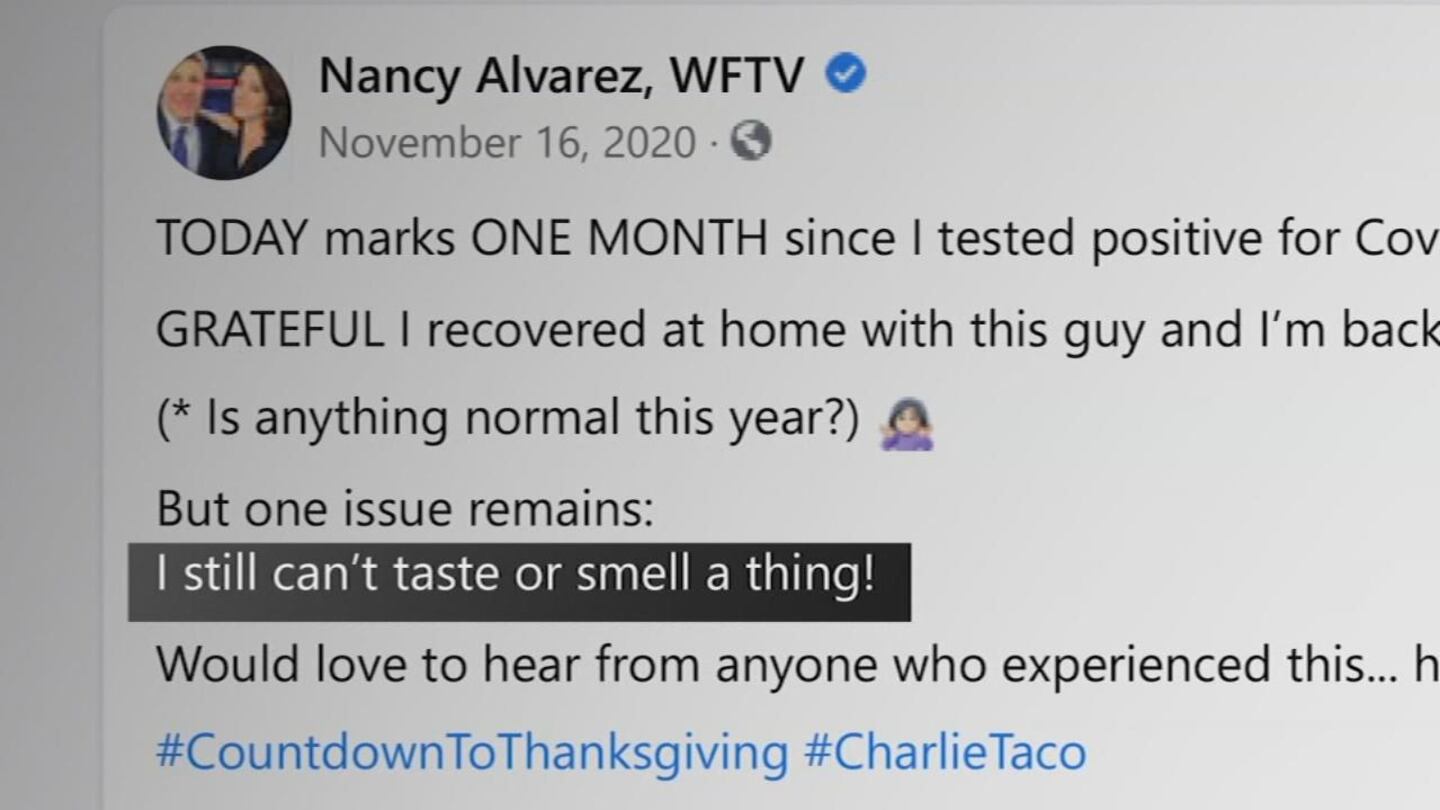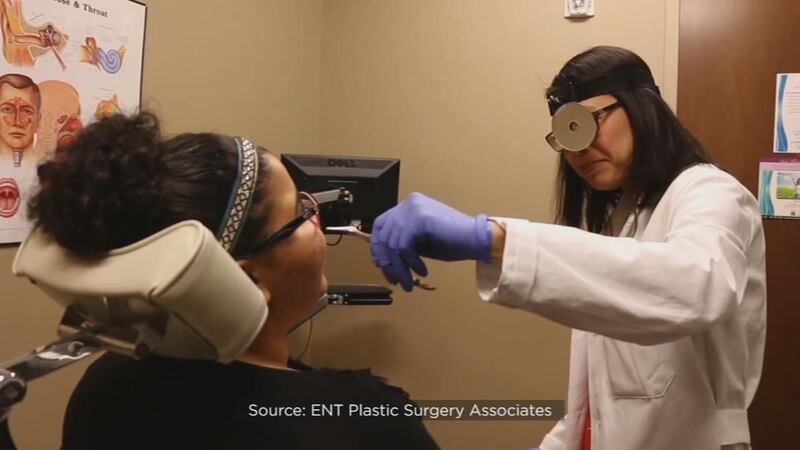ORLANDO, Fla. — Studies have shown 50 to 60 percent of coronavirus patients reported an altered or totally lost ability to smell or taste.
While those senses return for many, a large percentage of people say they’re not going back to normal.
READ: Here’s what to expect after your second dose of the COVID-19 vaccine
Sheryl Hudson says she can’t smell many of her favorite snacks, and the things she can smell aren’t pleasant.
“It smells like a chemical,” Hudson says.
And she’s not alone. Glory Sustache is a recovering COVID-19 patient who says her senses are only about 60 percent restored.
Months ago, WFTV’s own Nancy Alvarez described her own experience with a loss of senses while recovering from COVID-19.
Dozens of viewers replied that they too could taste very little, or that foods- especially meats- tasted like metal.
READ: COVID ‘long-haulers:’ What is PASC, and why do some people get it?
Many who spoke up then say they can still barely smell anything now. Some proposed potential solutions.
“There is sense therapy with different essential oils,” Hudson says.
An Ear, Nose, and Throat specialist in Winter Park says essential oils training has worked for some patients, but not always, and many have had other issues as well.
Sheryl Hudson says she now has to carry an inhaler, and after a lifetime of low blood pressure, now has high blood pressure.
A new study estimates that at least 30% of people have lingering symptoms from COVID-19.
The most common are fatigue, joint pain, and persistent loss of taste and smell.
READ: Some people are being infected with COVID-19 for a second time. Here’s how
“Now we’re called a long-hauler,” Hudson says.
Researchers now know COVID-19 affects the cells that tell the brain what things taste and smell like, but aren’t sure what might cause some other symptoms.
The impact of likely future medical costs has led the National Institutes of Health to start a $1 billion study of the issue.
Cox Media Group







